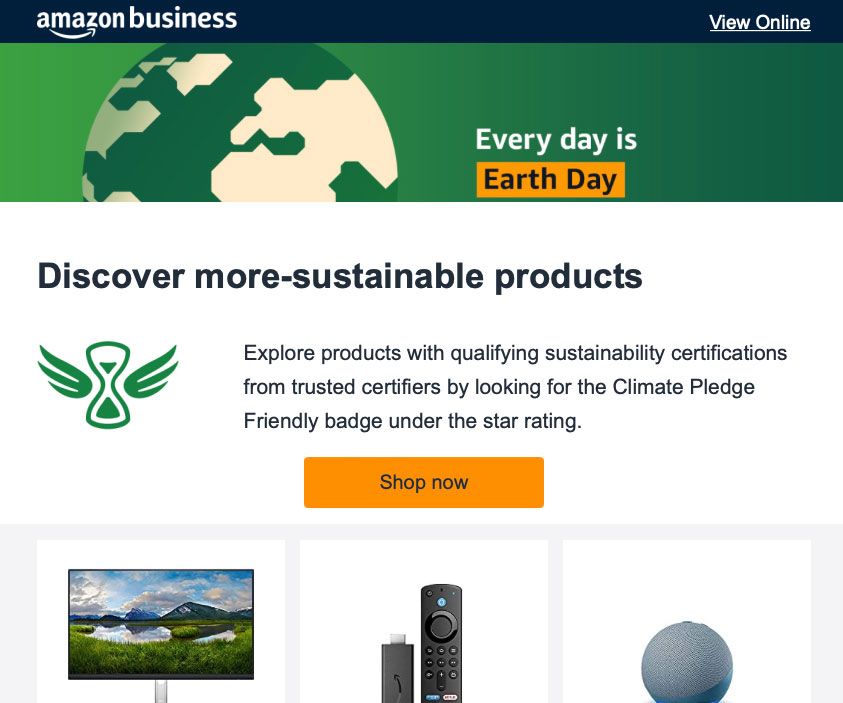Amazon, Just Say No to Earth Day Marketing
Every holiday or cultural event now is embraced as a marketing opportunity. But brands risk being seen as inauthentic or hypocritical if all they do is talk and don't walk the walk.

- Near Media conducted three surveys to understand consumer reactions to Amazon Earth Day promotions.
- People were neutral-to-positive about Earth Day promotions generally, but Amazon's name drew more negative responses.
- Companies should be more thoughtful about trying to piggyback on national holidays and celebrations or they may risk blowback.
